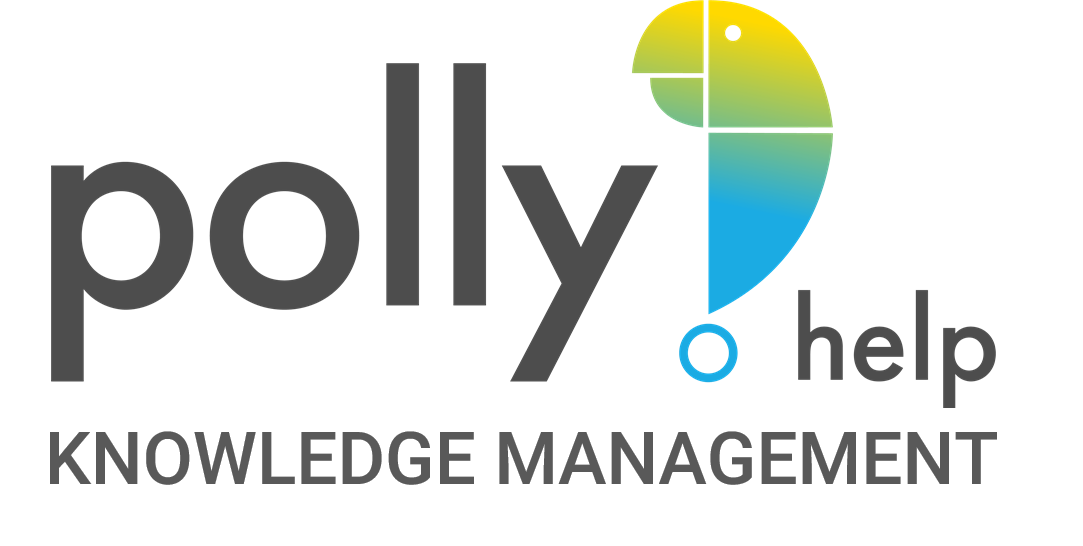The landscape of the insurance industry is undergoing a significant shift, catalyzed by the incorporation of insurance knowledge management systems. In the throes of digital transformation, stakeholders are discovering newfound efficiencies and refining the accessibility of crucial information. This evolution is not only about technological advancement but about reshaping the core of customer interactions and internal processes to pave the way for insurance sector efficiency.
At the heart of this transformation lies an unwavering focus on customer experience enhancement. Integrated knowledge management systems present a paradigm where both employees and policyholders benefit from the streamlined ease of accessing information and resolving queries. By breaking down operational complexities into manageable insights, these systems are forging a future where the swift flow of knowledge is a driving force behind the success and competitiveness of insurance companies.
Key Takeaways
- Insurance knowledge management systems are revolutionizing industry standards for efficiency and service.
- Customer experience enhancement is at the forefront of digital transformation efforts.
- Seamless access to accurate information is essential for policyholders and insurance personnel alike.
- Reshaping traditional processes, knowledge management platforms improve collaboration and understanding.
- Digital knowledge systems serve as a nexus for innovation and customer-centric developments within insurance.
- Strategic knowledge management contributes significantly to reducing operational costs.
Understanding Insurance Knowledge Management
The domain of insurance knowledge management has become increasingly crucial as companies pursue efficiency and enhanced customer service. This strategic shift closely ties into the adoption of digital knowledge systems, pushing forward the boundaries of traditional practices to accommodate an interconnected and digitally agile operation.
The Rise of Digital Knowledge Systems in Insurance
One of the most noteworthy changes in the insurance industry is the significant lean towards digital knowledge systems. These systems represent robust, centralized platforms where data is not just stored, but intelligently managed to support every facet of insurance operations. From underwriting and claims management to customer service and risk assessment, digital knowledge systems are crucial for the real-time distribution and retrieval of information, fundamentally transforming how insurance professionals access and engage with data.
Improving Processes and Collaboration with Knowledge Management
An efficient workflow and strong collaborative environment are integral to the success of any insurance company. Insurance process improvement is achieved when teams can streamline their workflow, minimizing repetitive tasks and eliminating bottlenecks. By implementing dynamic knowledge management solutions, collaborative insurance teams can work cohesively, whether they’re in one central location or spread across multiple geographies. The combined power of process improvement and teamwork fosters an adaptable and responsive insurance workforce, ready to confront the evolving demands of a digital-first customer base.
- Streamlined claim processing through real-time data access
- Centralized communication channels for improved inter-departmental collaboration
- Enhanced customer support with immediate access to policy details and FAQs
The transitions brought about by effective knowledge management in insurance cannot be understated. As insurers become more agile and responsive to change, their ability to serve the modern policyholder with efficiency and precision markedly improves, setting a new benchmark for the industry.
The Crucial Role of Knowledge Management in Customer Experience
At the heart of a superior customer experience in today’s insurance industry lies the deft application of knowledge management systems. These digital facilitators are essential in prompting not just a transaction but a meaningful digital customer interaction that leaves a lasting positive impression. It’s not about a single encounter; it’s about creating a cohesive journey for the customer every step of the way. Optimizing insurance customer service in this manner is fundamental for insurance providers seeking to elevate their service offerings.
- Immediate Access: Digital knowledge repositories allow customers to swiftly obtain the information they seek, without the hindrance of business hours or geographical limitations.
- Consistent Information: Uniformity of information provided across various digital channels reassures customers and reduces errors or confusion.
- Personalized Service: Leveraging data analytics, knowledge management systems can help tailor the customer experience, making interactions more relevant and personal.
| Without Knowledge Management | With Knowledge Management |
|---|---|
| Isolated and inconsistent customer touchpoints | Seamless and coherent customer journey |
| Delayed responses causing customer frustration | Quick resolution of inquiries enhancing satisfaction |
| Generic service lacking personal touch | Customized interactions based on customer history |
| High dependency on customer service representatives | Empowered customers with self-service options |
Embracing knowledge management is not an option but a strategic imperative for insurance companies that value customer-centricity. By converting disparate encounters into a harmonious customer experience, insurers forge stronger bonds with customers, securing not just business continuity but also advocacy and trust. Thus, the incorporation of advanced knowledge management platforms is a decision that directly aligns with the priority to deliver exceptional customer service and robust digital customer interaction.
Strategizing Insurance Products with Knowledge Management
The evolution of insurance from focusing on products to prioritizing customers has been a pivotal shift in the industry. A greater emphasis on customer-centric insurance has been brought about through the strategic application of knowledge management systems, fostering an environment where policyholder retention strategies take center stage. Now, insurers are developing an insurance product strategy that prioritizes long-term customer engagement and satisfaction.
From Product-Centric to Customer-Centric Models
Transitioning from traditional product-centric models to customer-centric platforms ensures that services are tailored to meet the unique needs of each policyholder. By leveraging knowledge management tools, insurers are now able to gain a better understanding of their clientele, thus delivering more personalized and relevant products and services.
Pivoting Strategies to Enhance Policyholder Retention
Insurance companies are adopting comprehensive strategies to retain clients. Key to this effort has been creating a seamless experience for policyholders at every touchpoint. Customer retention is critical, and efficient knowledge management systems are invaluable in achieving this goal, equipping agents with the necessary tools to promptly address inquiries and claims.
| Strategy | Benefits | Expected Outcome |
|---|---|---|
| Personalized Communication | Builds stronger policyholder relationships | Increase in customer satisfaction and loyalty |
| Digital Self-Service Portals | Provides 24/7 access to insurance information | Higher convenience, resulting in improved retention rates |
| Automated Claim Processing | Speeds up resolution times | Positive policyholder experience and trust in brand |
| Data-Driven Insights | Helps in personalizing insurance products | Policyholder feels understood and valued |
| Feedback Mechanisms | Encourages two-way communication | Direct impact on services and product development |
Through a dedicated commitment to a customer-centric approach, insurance firms are poised to transform the landscape of policyholder engagement. Knowledge management is the key to unlocking a deeper connection with customers, one that goes beyond transactions to create enduring value and trust.
Overcoming Low-Touch Interaction Challenges in Insurance
In an era where insurance companies have fewer opportunities to engage with customers directly, enhancing the quality and efficiency of every interaction is vital. Knowledge management systems are instrumental in strengthening policyholder engagement, ensuring that each customer interaction, no matter how brief, is impactful and leaves a positive impression.
Maximizing the Value of Each Customer Interaction
Insurance interactions, typically infrequent, must be meticulously optimized for customer service effectiveness. By leveraging streamlined communication channels and ensuring agents have immediate access to a well-organized knowledge base, insurance providers can deliver fast, accurate, and personalized service. This proactive approach significantly deepens trust and reinforces the insurer’s commitment to customer satisfaction.
Strategies for Meaningful Policyholder Engagement
Developing and implementing strategies to foster engaging and rewarding relationships with policyholders is paramount. These strategies range from leveraging advanced analytics to understand customer needs better to offering round-the-clock access to insurance resources. Meaningful engagement not only impresses customers during occasional interactions but also builds a foundation for increased loyalty and long-term business growth.
Here are key approaches to activate solutions for effective interactions in the insurance sector:
- Develop user-friendly digital platforms to facilitate seamless access to insurance services.
- Incorporate chatbots and virtual assistants to provide instant support and guidance.
- Conduct training sessions to enhance agents’ skills in handling complex customer queries.
- Employ customer feedback loops to continually refine the interaction process.
- Use analytics to tailor engagement strategies to individual customer profiles.
By addressing the inherent challenges of low-touch interactions within the insurance realm with these forward-thinking strategies, insurers can achieve greater customer service effectiveness and fortify their market presence.
| Strategy | Objective | Benefits |
|---|---|---|
| Digital Platforms | Enhance accessibility | 24/7 service, improved customer satisfaction |
| Chatbots & Assistants | Instant support | Efficiency, reduced wait times |
| Agent Training | Quality service | Professional interactions, problem resolution |
| Feedback Loops | Continuous improvement | Adaptation to customer needs, enhanced retention |
| Analytics | Personalized engagement | Targeted offerings, stronger relationships |
Adapting to the Competitive Landscape in Insurance
In an era defined by a highly competitive insurance market, insurers are finding themselves at a crossroads. To thrive, it is crucial to navigate the complexities of consumer choice and to cater to informed insurance buyers. Today’s consumers have access to more insurance options than ever before, making it increasingly important for insurers to distinguish their offerings and make the selection process as uncomplicated as possible for policyholders.
To maintain a competitive edge, insurers are turning to advanced knowledge management systems. These powerful tools are reshaping the industry, enabling companies to offer personalized and straightforward experiences that are aligned with the expectations of modern policyholders. Let’s delve into how these systems are essential for insurers who aim to excel in the fast-paced market landscape and explore the broad array of options available to consumers today.
Knowledge management systems serve as the linchpin for providing exceptional service. They help insurers by:
- Consolidating vast amounts of data into one accessible platform,
- Presenting policy options in a clear, digestible format,
- Ensuring customers have all the necessary resources for informed decision-making,
- Streamlining customer interaction and support protocols,
- Empowering employees to deliver consistent, quality advice and solutions.
As the insurance market evolves with an influx of well-informed customers looking for the best policies, insurers need to communicate the value of their offerings more clearly. Here is an illustrative comparison of traditional versus innovative approaches in insurance:
| Traditional Approach | Innovative Approach |
|---|---|
| Product-Centric Focus | Customer-Centric Experiences |
| Complex Policy Details | Simplified Information Presentation |
| Generic Services | Tailored Solutions |
| Delayed Communication | Real-Time Engagement |
| Fragmented Customer Support | Seamless Service Ecosystem |
In conclusion, the success of insurance companies in today’s market depends on their ability to adapt to consumer needs and preferences. By leveraging knowledge management, insurers can enhance service efficiency, simplify access to information, and offer personalized insurance solutions that meet the demands of the informed buyer.
Key Features of an Efficient Knowledge Management System
Within the modern insurance landscape, the spotlight often falls on the robustness of a knowledge management system—a platform designed to synergize data, expertise, and processes. An optimal system resonates through its compelling features that not only streamline operations but also propel client satisfaction and service quality to unprecedented heights.
Integrating Must-Have Knowledge Management Tools
Primed for performance, today’s knowledge management systems brim with features designed to simplify information discovery and knowledge sharing. These tools are essential for supporting a dynamic insurance environment:
- Centralized Databases that house all policy information and procedures
- Intelligent Search functionality enabling quick retrieval of context-specific knowledge
- Document Management for systematic handling of policy forms and insurance guidelines
- Collaborative Spaces that foster better interaction and knowledge sharing among agents
- Analytics to track usage patterns and continuously enhance the knowledge base
These system capabilities are instrumental in aligning with the technological agility needed for today’s digitized insurance services, thereby enhancing the knowledge management system features.
Fostering a Self-Service Model for Policyholders
Insurance providers are increasingly recognizing the importance of empowering policyholders with self-service tools. These resources liberate customers from the constraints of traditional service models, granting them autonomy and flexibility in managing their insurance needs:
- FAQ Sections that provide immediate answers to common policy-related questions
- Interactive Guides and Articles offering insights and step-by-step processes
- Knowledge Hubs that encompass a broad spectrum of information on insurance products and services
Comprehensive policyholder resources have transformed the way customers interact with their insurance providers, allowing for a more engaged and satisfying experience, courtesy of the prevailing insurance self-service tools.
Empowering customers to self-navigate through policies and claims, while ensuring they have the support and resources available at their fingertips, is not only a testament to an insurer’s customer-centricity but also a strategic move to optimize cost efficiencies and enhance the policyholder journey.
Insurance Knowledge Management Supporting Staff
Insurance enterprises are striving to enhance the capabilities and efficiency of their staff members through sophisticated staff support knowledge management systems. This concerted effort in insurance information centralization and furnishing employees with real-time insurance data is reshaping the industry, progressing towards unparalleled levels of customer service.
Centralizing Customer Information for Quicker Access
With a centralized approach to managing customer information, insurance companies are providing their staff with tools to access client data swiftly and securely. This consolidation of information into a single repository significantly reduces the time spent by agents searching for client specifics, which in turn accelerates response time and enhances the customer service experience.
Empowering Insurance Agents with Real-time Data
By equipping agents with real-time data, they have a dynamic overview of the customer’s requirements. The immediacy of this information allows for prompt and more informed decision-making, enabling agents to cater to client needs with greater precision and personalization.
- Staff access to updated policy changes
- Improvements in claims processing efficiency
- Opportunities for personalized customer service strategies
The tables below reflect key components of the knowledge management infrastructure catered to support staff within the insurance industry:
| Knowledge Management Component | Implementation in Insurance | Benefits to Staff |
|---|---|---|
| Centralized Data Repositories | Unified platforms that house customer policies, claims, and interaction history | Facilitates swift data retrieval and streamlined customer communication |
| Onboarding and Training Modules | Comprehensive learning programs accessible digitally to all new hires | Ensures readiness and uniform understanding of procedures and company policies |
| Real-time Updates and Alerts | Instant notifications of system changes or important events | Keeps staff current on the latest developments impacting service and compliance |
The integration of these systems signals a leap forward in assembling a knowledgeable, agile, and customer-centric workforce capable of leading the insurance industry into a future where effective information management is key.
Quantifying the Benefits of Implementing Knowledge Management
The integration of Knowledge Management (KM) systems within the insurance industry reaps substantial benefits, affecting various facets of operations and customer servicing. Accurately measuring these advantages can highlight the transformative impact effective knowledge management has on an organization’s bottom line.
Key outcomes include a seamless policyholder experience, which directly correlates with customer satisfaction and retention. By vastly reducing the need for policyholder-agent contact for simpler inquiries, KM promotes self-dependency. In addition, KM aids in reducing insurance costs as it streamlines processes, lessens human error frequency, and decreases time spent on repetitive tasks—passing on the cost-saving benefits to both the insurers and the customers.
| Aspect of Insurance | Impact without KM | Impact with KM | Quantifiable Benefits |
|---|---|---|---|
| Customer Experience | Fragmented and potentially frustrating | Consistent and seamless | Improved NPS (Net Promoter Score) |
| Operational Costs | Higher due to inefficient processes and duplicated efforts | Reduced through streamlined workflows and automation | Lowered operational expenses |
| Employee Efficiency | Decreased due to lack of information and necessary resources | Increased as a result of readily available knowledge and tools | Rise in productivity metrics |
| Policyholder Self-Service | Limited, leading to increased demand on workforce | Enhanced, offering policyholders autonomy | Decrease in support tickets and inquiries |
The adoption of knowledge management systems in insurance also brings about less tangible, yet vital benefits—such as enhancing the collective intelligence of the organization. By consolidating corporate knowledge and making it readily accessible, insurers craft a collaborative environment that encourages innovation and ongoing learning. These outcomes propel companies toward long-term success and sustainability in a dynamic market.
Examples of Successful Knowledge Management in Insurance
The vital role of successful knowledge management in driving the insurance sector towards efficiency and improved customer outcomes cannot be overstated. A deep dive into insurance industry case studies reveals how the integration of technology in knowledge distribution is forging a path for innovation and service excellence.
Case Studies: Enhancing Productivity and Customer Satisfaction
Leading insurance companies are setting benchmarks by leveraging knowledge management systems to heighten productivity and foster customer satisfaction. For instance, the use of AI-powered chatbots for answering policy-related queries has minimized response times and improved accuracy, providing policyholders with instant and reliable support.
Leveraging Technology for Knowledge Distribution
Advancements in technology such as artificial intelligence and machine learning have been pivotal in enhancing the distribution of knowledge within the insurance space. Take, for example, the implementation of machine learning algorithms that personalize policy recommendations based on a customer’s interaction history, ensuring that relevant information is surfaced proactively.
- Data analytics tools analyze customer feedback to improve existing products and services.
- Secure digital platforms facilitate the confidential sharing of documents between insurers and clients, streamlining the claims process.
- Collaborative software enables teams to stay updated on latest policy amendments, ensuring that every member is informed and empowered to make educated decisions.
Insurance Sector’s Transformation Through Knowledge Management Innovation
In an era marked by rapid technological advancements, the insurance industry is experiencing a paradigm shift. Knowledge management innovation is at the forefront, driving significant changes in how companies store, process, and utilize data. The integration of cutting-edge technologies like artificial intelligence and blockchain is not just a trend but a transformative process that is setting new standards for operational excellence and customer satisfaction.
Artificial Intelligence and Blockchain in Knowledge Management
The use of artificial intelligence in insurance streamlines complex processes by providing actionable insights and enhancing predictive analytics capabilities. AI-driven tools improve decision-making and efficiency, creating a more dynamic knowledge management ecosystem. Similarly, blockchain technology brings unprecedented security and transparency to knowledge management systems, making every transaction and data exchange within the sphere of insurance more trustworthy and immutable.
Collectively, these technologies are revamping the knowledge management landscape, providing a competitive edge to forward-thinking insurance firms. Advanced algorithms enable better risk assessment, while blockchain ensures the integrity and traceability of records, thereby elevating the standards of accountability and compliance within the sector.
Reshaping Knowledge Access with Advanced Technologies
By adopting these innovations, insurance entities can overcome traditional challenges associated with data silos and fragmented information systems. These technologies not only facilitate quicker access to knowledge but also promote a culture of continuous learning and adaptation. Insurance professionals can leverage sophisticated AI tools for real-time insights, while blockchain technology allows for a decentralized, yet thoroughly secure ecosystem for managing sensitive data.
With these developments, the insurance sector is well-equipped to handle the complexities of modern business environments, ensuring agility and resilience in the face of economic and geopolitical uncertainties. Knowledge management innovation is thus pivotal in securing the future of insurance, promising enhanced service delivery and an overall strengthening of industry practices.
Conclusion
The imperative role of strategic knowledge management cannot be understated in paving the way for a future-proof insurance industry. It acts as the fulcrum upon which the industry’s digital metamorphosis balances, enabling insurers to harness collective insights for significantly enhanced decision-making. In the fast-paced and ever-shifting landscape of insurance, where agility and informed responsiveness are key to maintaining competitive advantage, the integration of knowledge management systems becomes a linchpin for success.
Through centralized information systems, insurance companies are pioneering platforms that not only elevate staff performance and skill sets but also revolutionize customer service. This level of operational refinement ensures that every customer engagement is maximized for efficacy and satisfaction. Moreover, it nurtures a workforce that is both knowledgeable and flexible, equipped to adapt to market contingencies and internal process optimizations alike.
In summation, the union of sophisticated technology and strategic knowledge management conveys a robust message to the marketplace: the insurance sector is poised to thrive amidst change. It assures a future where organizations can mitigate risks, capitalize on opportunities, and continue to provide unparalleled value to policyholders. The journey of transformation may be complex, but the destination—a cohesive, efficient, and resilient insurance industry—makes it compellingly worthwhile.
FAQ
What is an insurance knowledge management system and how does it relate to digital transformation?
An insurance knowledge management system is a centralized digital platform that organizes, stores, and retrieves data and information across the insurance sector. It is pivotal in driving digital transformation by enhancing customer experience, streamlining processes, boosting efficiency, and fostering collaboration within insurance teams.
How do digital knowledge systems improve insurance process improvement and collaboration?
Digital knowledge systems facilitate insurance process improvement by providing easy access to information, improving decision-making, and reducing response times. They strengthen collaborative efforts among insurance teams by breaking down data silos, encouraging knowledge sharing, and enabling more informed interactions with customers.
Why is knowledge management crucial for the customer experience in insurance?
Knowledge management systems are crucial for customer experience because they provide a solid foundation for efficient customer service. They ensure digital customer interactions are smooth by making relevant information accessible at any time, thus enhancing satisfaction and loyalty in an industry characterized by infrequent customer interactions.
How have knowledge management systems shifted the focus from product-centric to customer-centric models in insurance?
Knowledge management systems have allowed insurers to evolve from a product-centric focus to a customer-centric model by centralizing customer data and enabling policyholder-centric service delivery. This shift makes it easier for customers to access information, file claims, and interact with their insurers, leading to enhanced satisfaction and improved policyholder retention.
What strategies can insurers use to effectively engage with policyholders?
Insurers can employ various strategies to engage effectively with policyholders, such as personalizing interactions, providing clear and concise information, and offering self-service tools that empower customers. Using knowledge management systems to ensure quick and accurate responses to inquiries also helps in building deeper engagement and trust with policyholders.
How does an efficient knowledge management system help insurers adapt to the competitive landscape?
An efficient knowledge management system helps insurers stand out in the competitive landscape by providing operational efficiencies, supporting a customer-centric approach, and offering a wealth of information. These factors collectively ensure quick service delivery, informed decision-making, and a satisfying customer experience that differentiates insurers in the marketplace.
What are some indispensable features of a top-notch knowledge management system in insurance?
Essential features of a robust knowledge management system in insurance include an extensive knowledge base, FAQs, self-service tools like chatbots and decision trees, and easy-to-navigate interfaces. These aim to provide independent support for policyholders, streamline the customer journey, and optimize the insurance experience.
How does a knowledge management system support the insurance staff’s need for information and training?
A knowledge management system supports insurance staff by centralizing customer information, allowing for quick data access, and facilitating real-time updates. It also offers training resources, such as digital learning modules and webinars, equipping agents with the necessary knowledge to offer top-tier service.
Can the benefits of knowledge management in insurance be quantified?
Yes, the benefits of knowledge management in insurance can be quantified through improved policyholder experience, increased efficiency, reduced costs, and a greater emphasis on self-service options. These benefits result in a measurable impact on customer satisfaction rates and overall profitability for insurers.
What advanced technologies are enhancing knowledge management systems in insurance?
Advanced technologies such as artificial intelligence and blockchain are revolutionizing knowledge management systems in insurance by automating processes, facilitating secure data exchange, and dramatically improving the way information is accessed and used to deliver customer-centric services.
How does strategic knowledge management contribute to the future-proofing of the insurance industry?
Strategic knowledge management contributes to the future-proofing of the insurance industry by ensuring that organizations are agile, knowledgeable, and prepared to adapt to market or operational changes. It fosters enhanced decision-making, supports digital transformation efforts, and builds a strong foundation for sustainable growth and customer loyalty.






